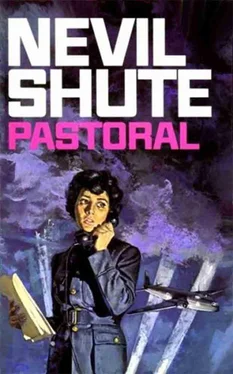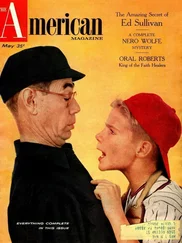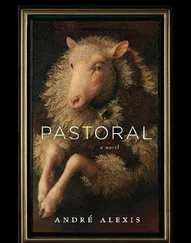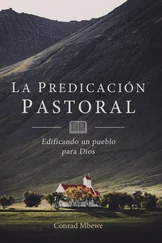Nevil Shute Norway - Pastoral
Здесь есть возможность читать онлайн «Nevil Shute Norway - Pastoral» — ознакомительный отрывок электронной книги совершенно бесплатно, а после прочтения отрывка купить полную версию. В некоторых случаях можно слушать аудио, скачать через торрент в формате fb2 и присутствует краткое содержание. Жанр: unrecognised, на английском языке. Описание произведения, (предисловие) а так же отзывы посетителей доступны на портале библиотеки ЛибКат.
- Название:Pastoral
- Автор:
- Жанр:
- Год:неизвестен
- ISBN:нет данных
- Рейтинг книги:3 / 5. Голосов: 1
-
Избранное:Добавить в избранное
- Отзывы:
-
Ваша оценка:
- 60
- 1
- 2
- 3
- 4
- 5
Pastoral: краткое содержание, описание и аннотация
Предлагаем к чтению аннотацию, описание, краткое содержание или предисловие (зависит от того, что написал сам автор книги «Pastoral»). Если вы не нашли необходимую информацию о книге — напишите в комментариях, мы постараемся отыскать её.
Pastoral — читать онлайн ознакомительный отрывок
Ниже представлен текст книги, разбитый по страницам. Система сохранения места последней прочитанной страницы, позволяет с удобством читать онлайн бесплатно книгу «Pastoral», без необходимости каждый раз заново искать на чём Вы остановились. Поставьте закладку, и сможете в любой момент перейти на страницу, на которой закончили чтение.
Интервал:
Закладка:
That was not possible, of course. A good WAAF officer, mindful of the honour of the Service, did not get out of bed at four o’clock in the morning to go roaming in the moonlit woods with an officer from her station. She spent an appreciable portion of her time endeavouring to restrain her aircraftwomen from that sort of thing, though it was true that none of them had ever thought to plead that they had a date with a badger.
She stared disconsolately at the signal pad before her. The fault, she felt, in some way lay within herself. Hartley was a rotten station to be in, but there was fun to be got mere, good country fun, if you knew your way about and had the wit to find it. Peter Marshall seemed to have a lovely time; the pike yesterday, and now this ‘fox and badger in a quarter of an hour’ business. All she had managed so far was to go for rides upon her bicycle and, since the country was flat and she came from the hills, she didn’t think much of that.
It was a very quiet afternoon, with little flying in progress and nothing in particular happening. She took a little walk around her duties; passing the main telephone switchboard she looked in to see how L.A.W. Smeed was getting on. L.A.W. Smeed was sitting with head-phones on her hair and microphone upon her chest eating her black-market sweets and knitting a jumper for her next leave. She slipped the knitting down beside her chair when her officer appeared in the doorway.
‘Afternoon, Elsie,’ said Miss Robertson. ‘Let’s see your book.’
The girl handed her the log-book, written in pencil between ruled pencil columns; there were not many calls upon it. ‘Not very busy,’ said Miss Robertson.
‘No, ma’am. Real slack it’s been today.’
They chatted for a few minutes about the work. Then L.A.W. Smeed said. ‘Mind if I ask a question, ma’am?’
‘What is it?’ said Miss Robertson. She knew what it was likely to be: something to do with late leave, an attempt to short-circuit Flight Officer Stevens.
Elsie said: ‘Your name’s a funny one, isn’t it, Miss Robertson? Some of the girls were having an argument.’
The Section Officer said: ‘Gervase. It’s not a very common one.’
‘Gervase. I never knew anyone called that before. I think it’s ever so nice. What’s the other one, Miss Robertson—the L?’
‘Laura. There are plenty of those about.’
‘I know ever so many Lauras,’ said the telephonist, ‘but I never met a Gervase before. I do think that’s pretty. Are there many girls called Gervase where you come from?’
‘I don’t think so. I don’t think it’s a Yorkshire name particularly.’
‘Is that where your home is, Miss Robertson? I live in Clapham, just by Clapham South Underground.’
The officer said: ‘I come from a little place called Thirsk, in Yorkshire. But I don’t think Gervase is a Yorkshire name at all. Mother got it out of a book—Tennyson, or something.’
The telephone buzzed, and put an end to further confidences. Miss Robertson went on with her round.
Out in the country, by the river below Coldstone Mill, Marshall was assembling his little rod. He worked more absently than on the previous day, his mind equally divided between fishing and Section Officer Robertson. He wondered if the red plug would do the trick again or whether he should use a narrow-bodied thing that simulated a little alcoholic fish, unable to swim very well. He wondered if Section Officer Robertson really had a boy friend who was doing her dirt. It was quite possible that she had got mixed up with somebody at her last station; indeed, it would be rather queer if she had not, being as attractive as she was. Anyway, she was going to get mixed up with somebody on this one; he knew that very well already.
He wondered whether it was any good casting to the same place in the millpond for another pike, and he wondered very much what her name was. He had already discovered her initials from the file of postings to the station. He wondered how old she was; he was twenty-two himself and he was pretty sure that she was younger than that. If he could find out how long she had been a Section Officer, that might give him a line. But he could ask her that.
He began casting in a desultory way over the running water, but soon gave it up, and sat down on a stone and lit his pipe. Over his head the pigeons flapped and fluttered in and out of the trees, small clouds sailed slowly past on a blue sky, and once an early bee flew past his ear. Presently he got up and, smoking still, began to walk down the river, rod in hand. It was no good flogging the same place two days running, he thought.
He passed a couple of aircraftmen fishing where Gunnar had been on the previous day, and went on towards a pool at the next weir. Just above the pool he came on Sergeant Phillips sitting on a little stool, his float between the weed beds in mid-stream. The pilot paused beside him.
‘Done any good?’ he asked.
The sergeant shook his head. ‘Don’t seem to be nowt stirring. I reckon Gunnar must ha’ caught them all yesterday.’
‘How many did he get?’
‘Four.’
The pilot glanced back up the river. ‘I told Gunnar to see if he could borrow Sergeant Pilot Nutter’s little rifle, and we’d have a crack at those pigeons up by the mill.’
Aye, he was talking about that. He’s got the gun.’
‘We’ll have a crack at them one day.’
The sergeant nodded. ‘Make a change to get a pigeon for tea.’
Marshall left him, and went on to the weir. He cast for an hour above it and below but rose nothing; either there were no pike there or it was an off day when they would not feed. Presently he walked slowly back up-stream towards the mill, casting here and there as he went. At the mill he took down his rod, got on his bicycle, and rode back to the station.
He had packed up early with a vague hope that if he got back to the mess by half past four he might, quite accidentally, see Section Officer Robertson drinking a cup of tea. He did not find her there; either she was having tea in her office or else in her own quarters. He lingered for some little time until hope died; then he went up to his room to write his weekly letter to his mother.
He got out his pad, squared his shoulders at the deal table at the end of his bed, and began to write. He never knew what to say. His mother, he knew, lived each day in an agony of fear for him, a gnawing pain that she had suffered and concealed for nearly two years now. He could not write to her about the difficult raids, the ones that had not been so good, and he had long ago exhausted all that could be said about the uneventful ones. He wrote:
My darling mother,
We had a lovely flight the night before last, over to Turin and back. The moon got up as we were getting to the Alps and it was frightfully pretty with snow on the mountains and lakes and everything. They don’t have any black-out there and you could see the street lamps in the towns, and cars going along the road and everything. We went up to seventeen thousand and it was frightfully cold, but it was dry and there wasn’t any icing. I wore your leather waistcoat under everything else, and it was fine.
He paused, and then he wrote:
I’ve seen Switzerland three times now and I’d love to go there one day for a holiday, ski-ing and skating. I don’t think I want to go to Italy much.
He paused again; there really wasn’t much else to say about flying. He went on presently:
I caught a pike yesterday on one of the plugs, in the river here; eleven and a quarter pounds, it was awful fun. I brought it back and a lot of us had it for lunch today, stuffed.
Dare he say that Section Officer Robertson had liked it? Better not. He went on:
The biggest one caught for years was only fifteen pounds, so mine was a pretty good show. I got it on the new rod with the multiplying reel; it’s fine to use. A chap I met says he can show me a fox and a badger both in a quarter of an hour and we’re going out to try it tomorrow very early, about four. Next week I hope we shall be able to go pigeon-shooting.
Читать дальшеИнтервал:
Закладка:
Похожие книги на «Pastoral»
Представляем Вашему вниманию похожие книги на «Pastoral» списком для выбора. Мы отобрали схожую по названию и смыслу литературу в надежде предоставить читателям больше вариантов отыскать новые, интересные, ещё непрочитанные произведения.
Обсуждение, отзывы о книге «Pastoral» и просто собственные мнения читателей. Оставьте ваши комментарии, напишите, что Вы думаете о произведении, его смысле или главных героях. Укажите что конкретно понравилось, а что нет, и почему Вы так считаете.












